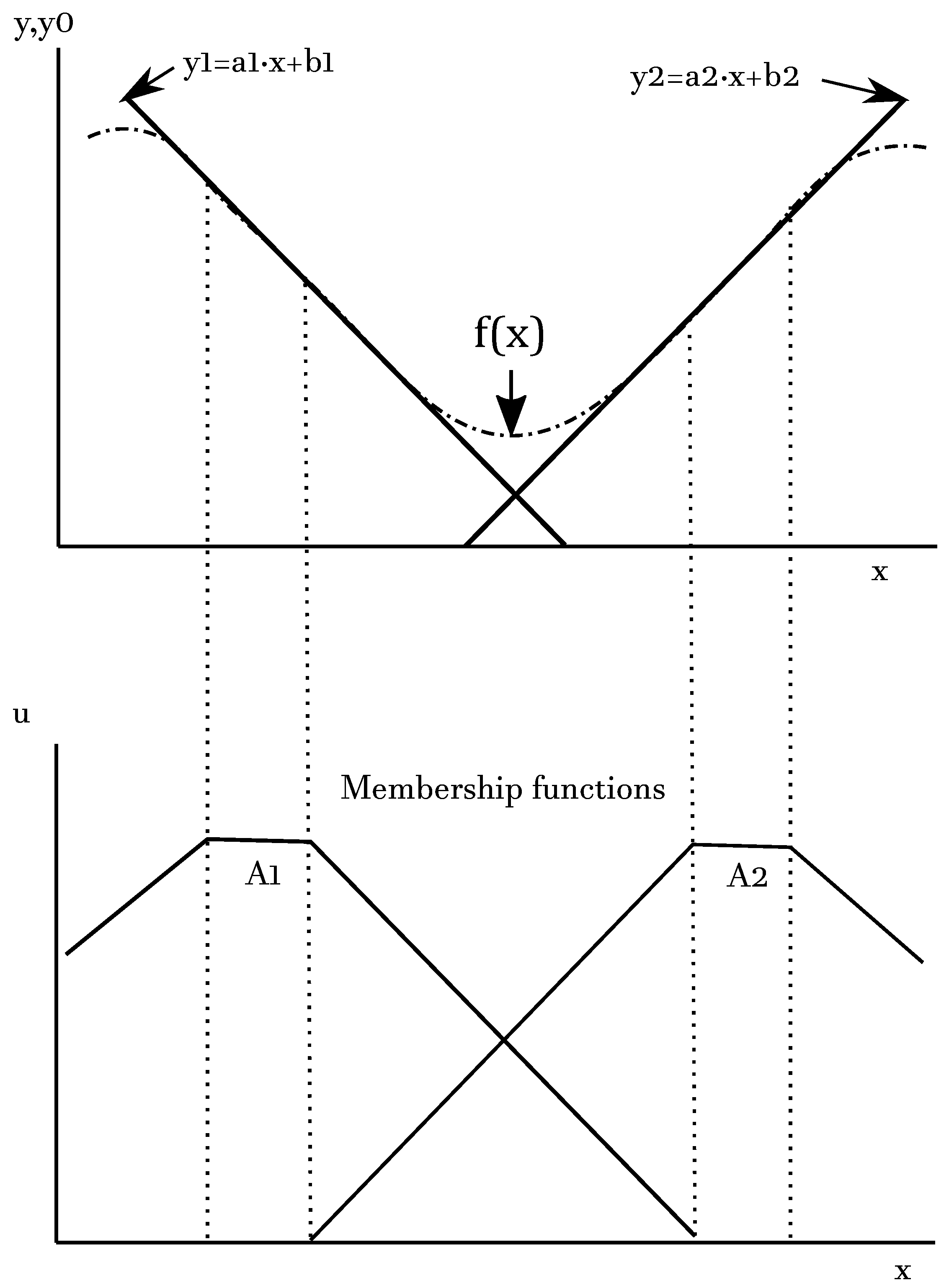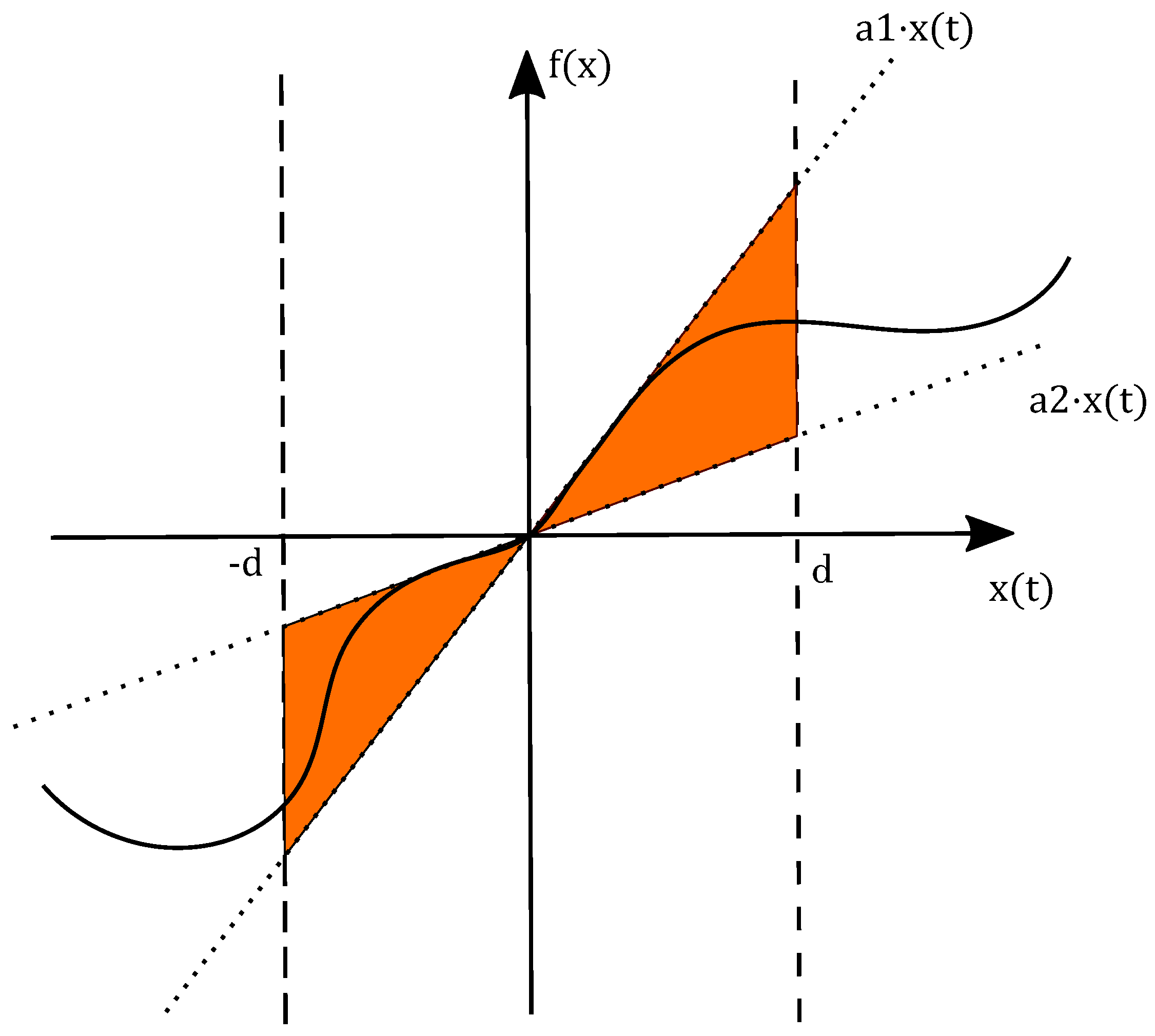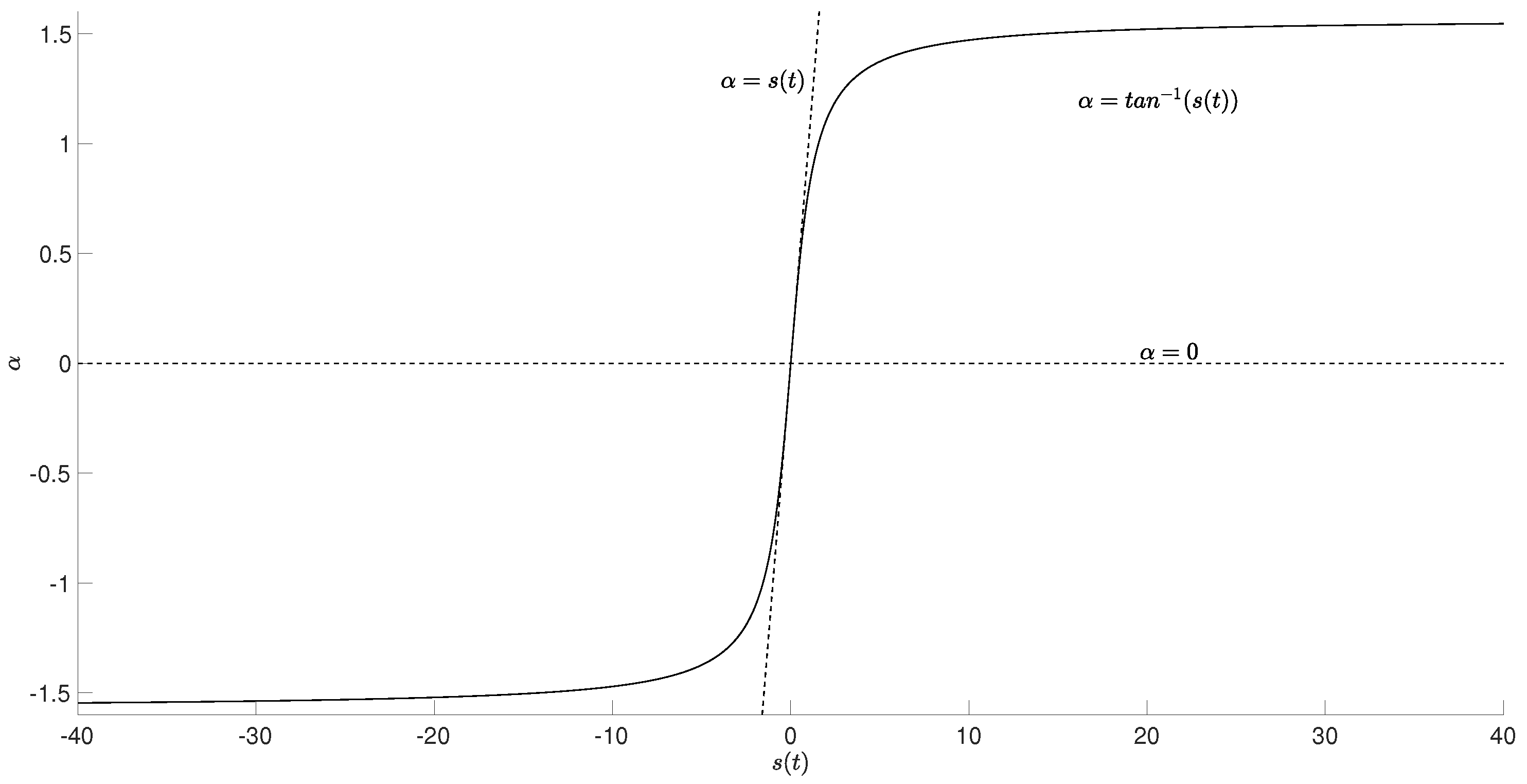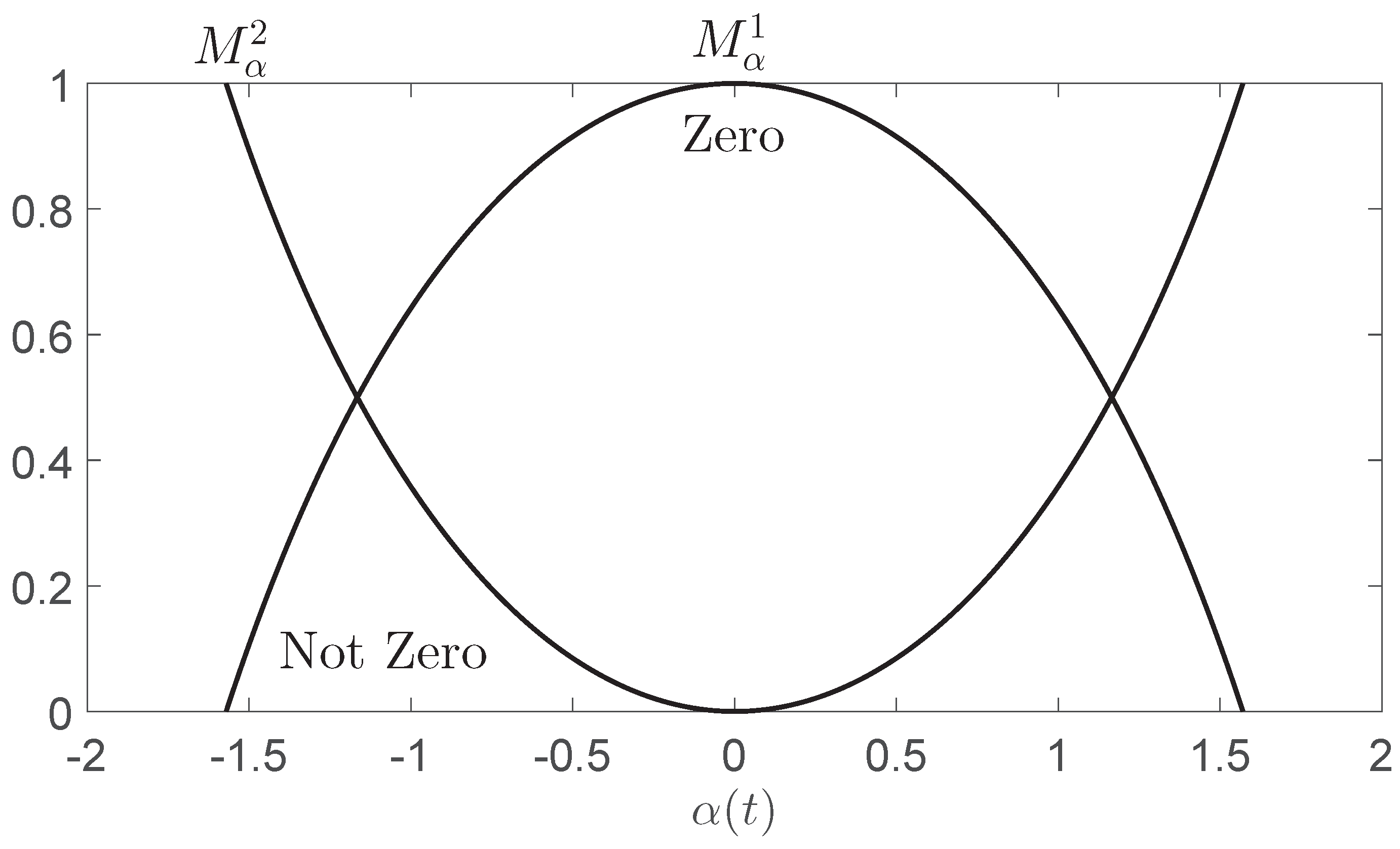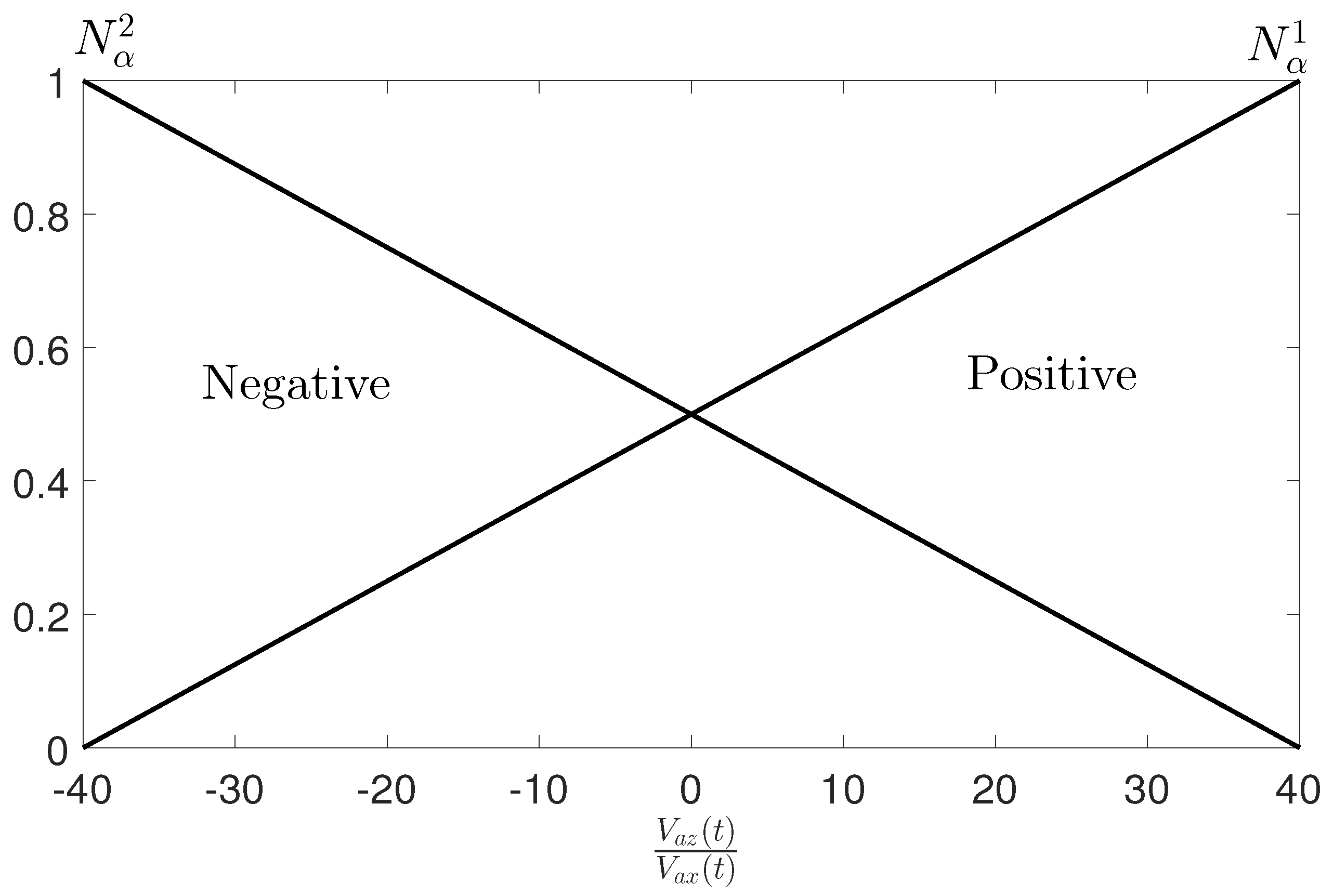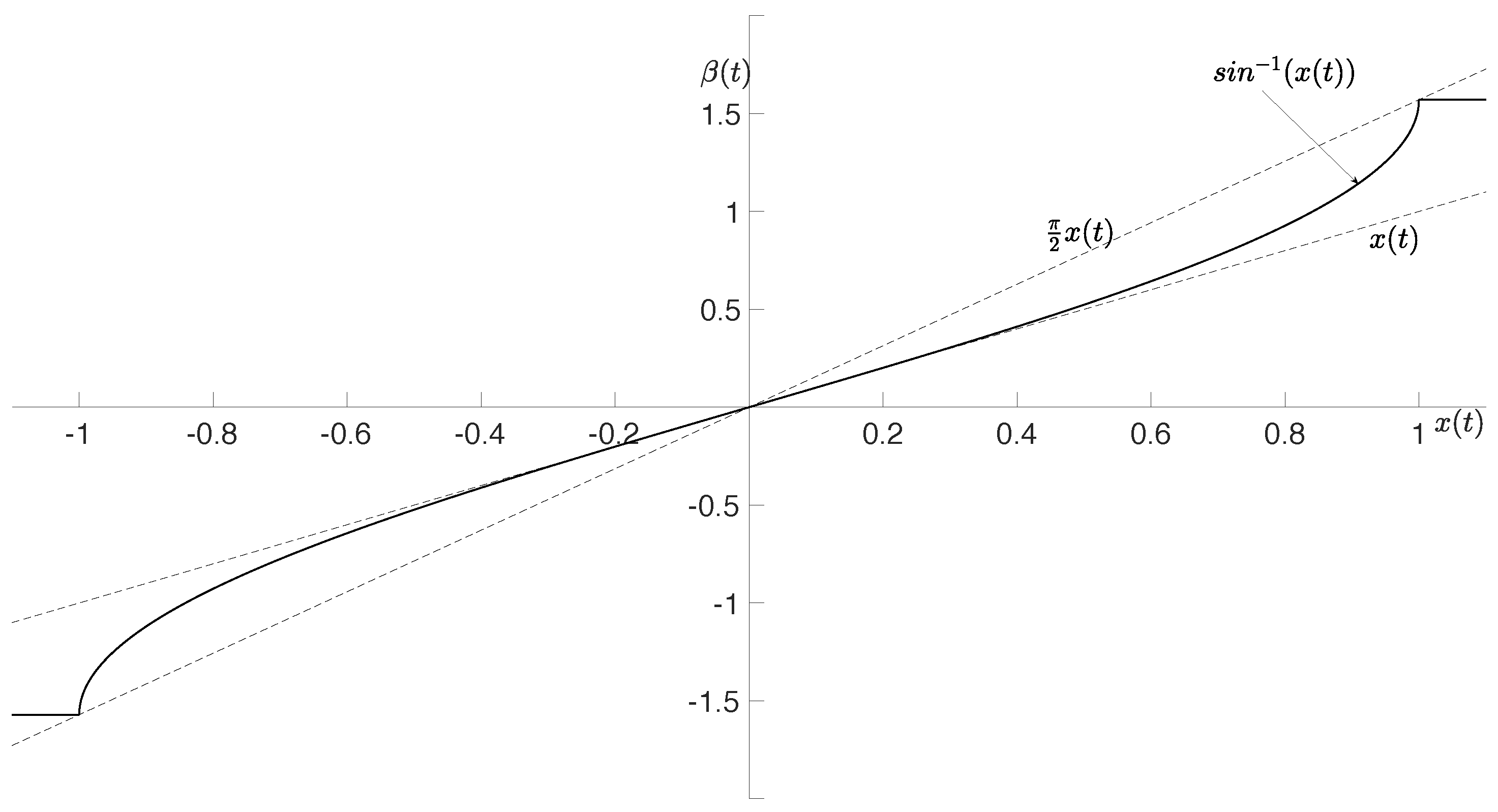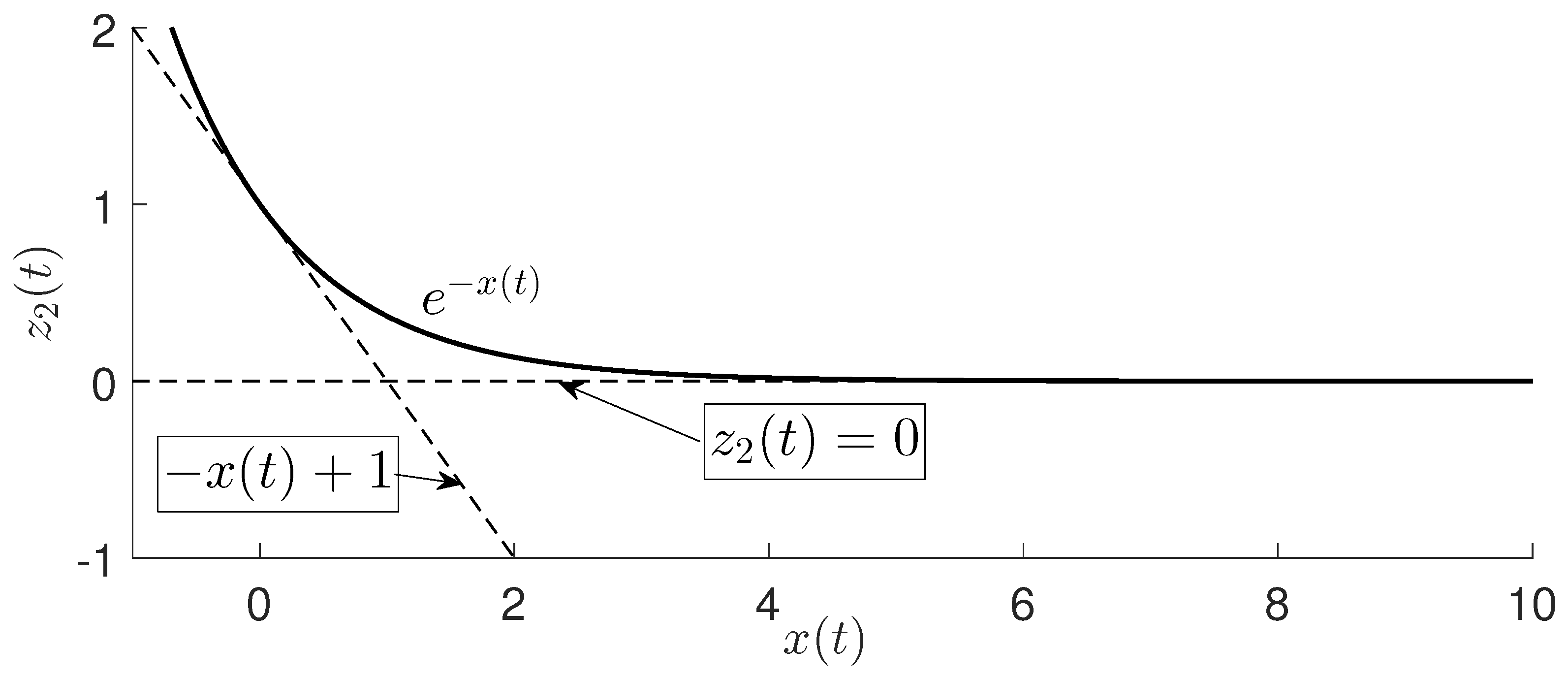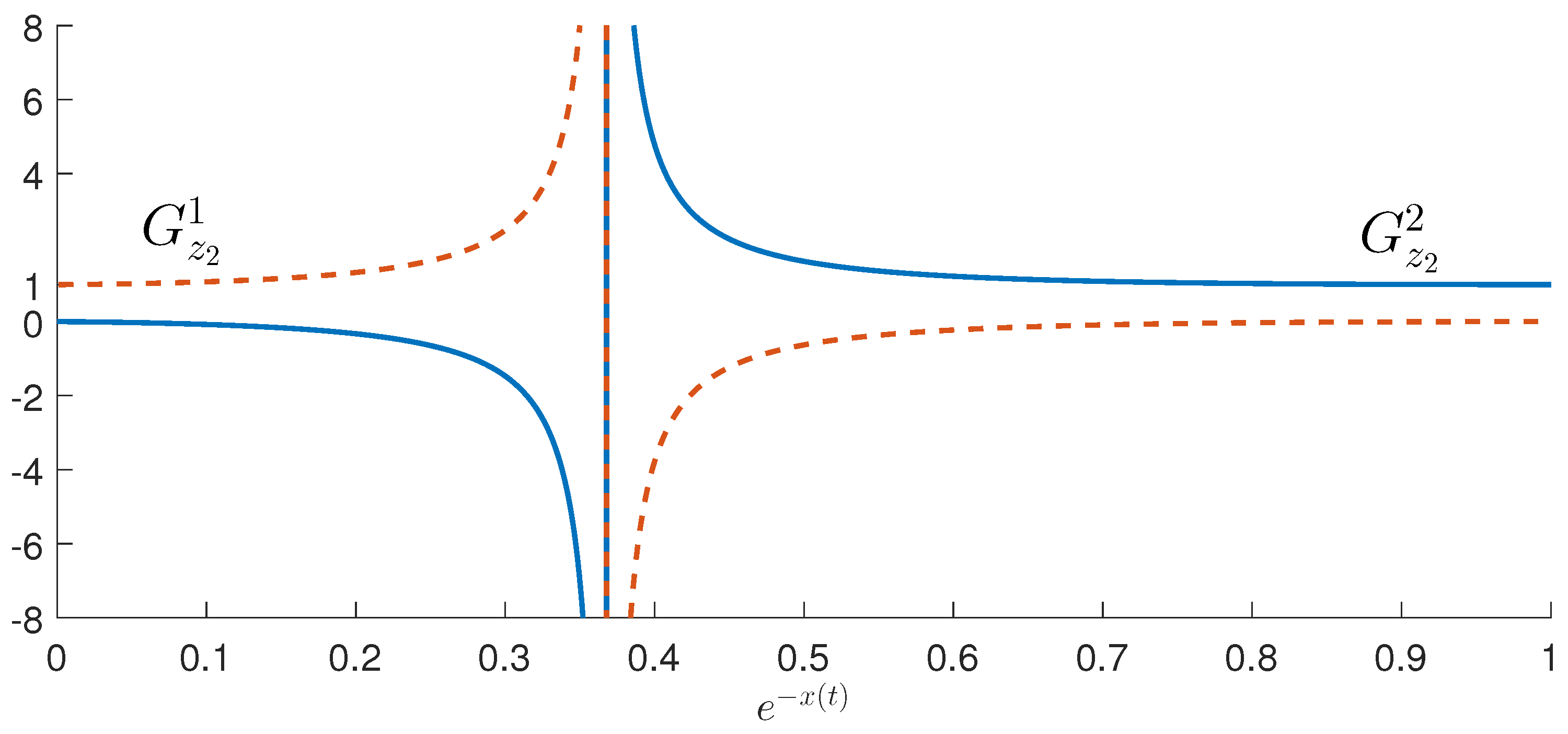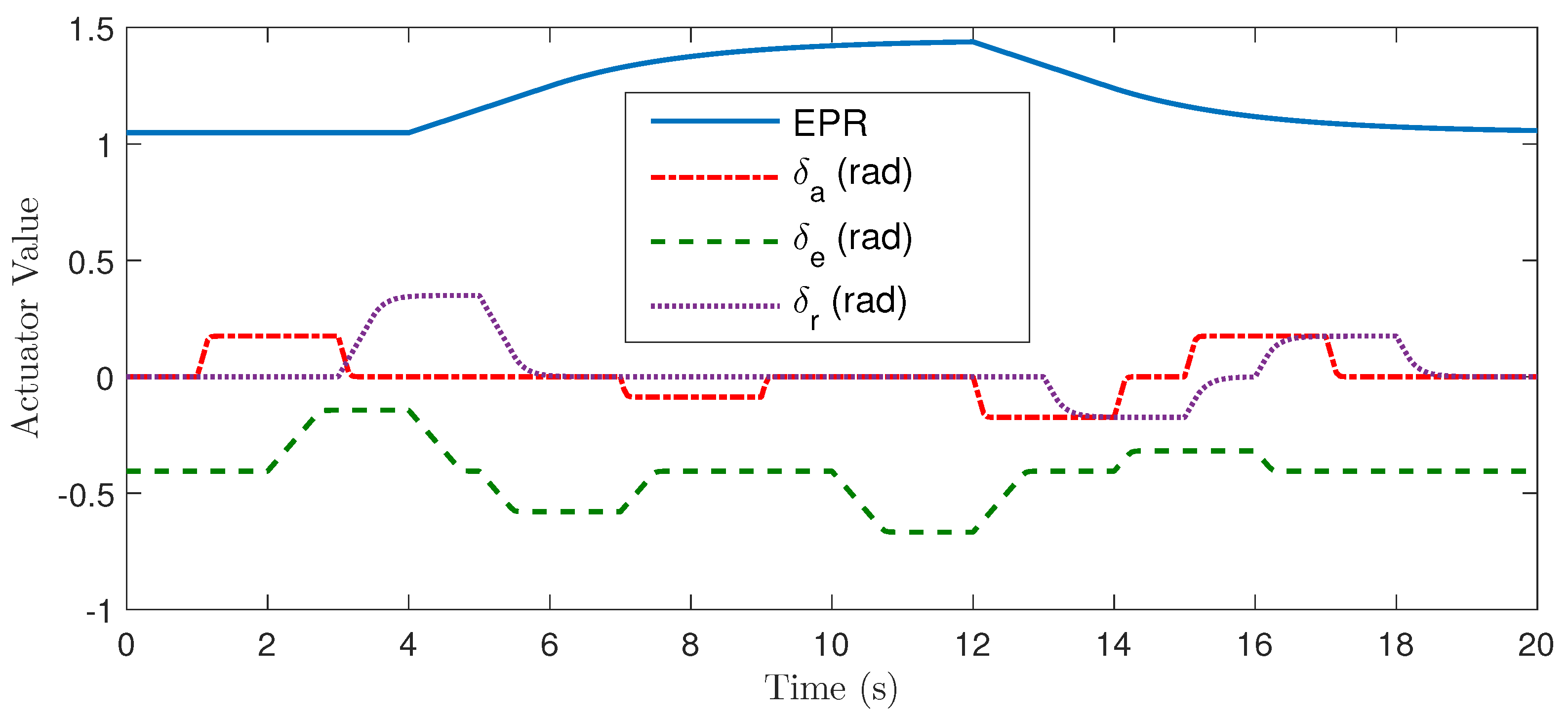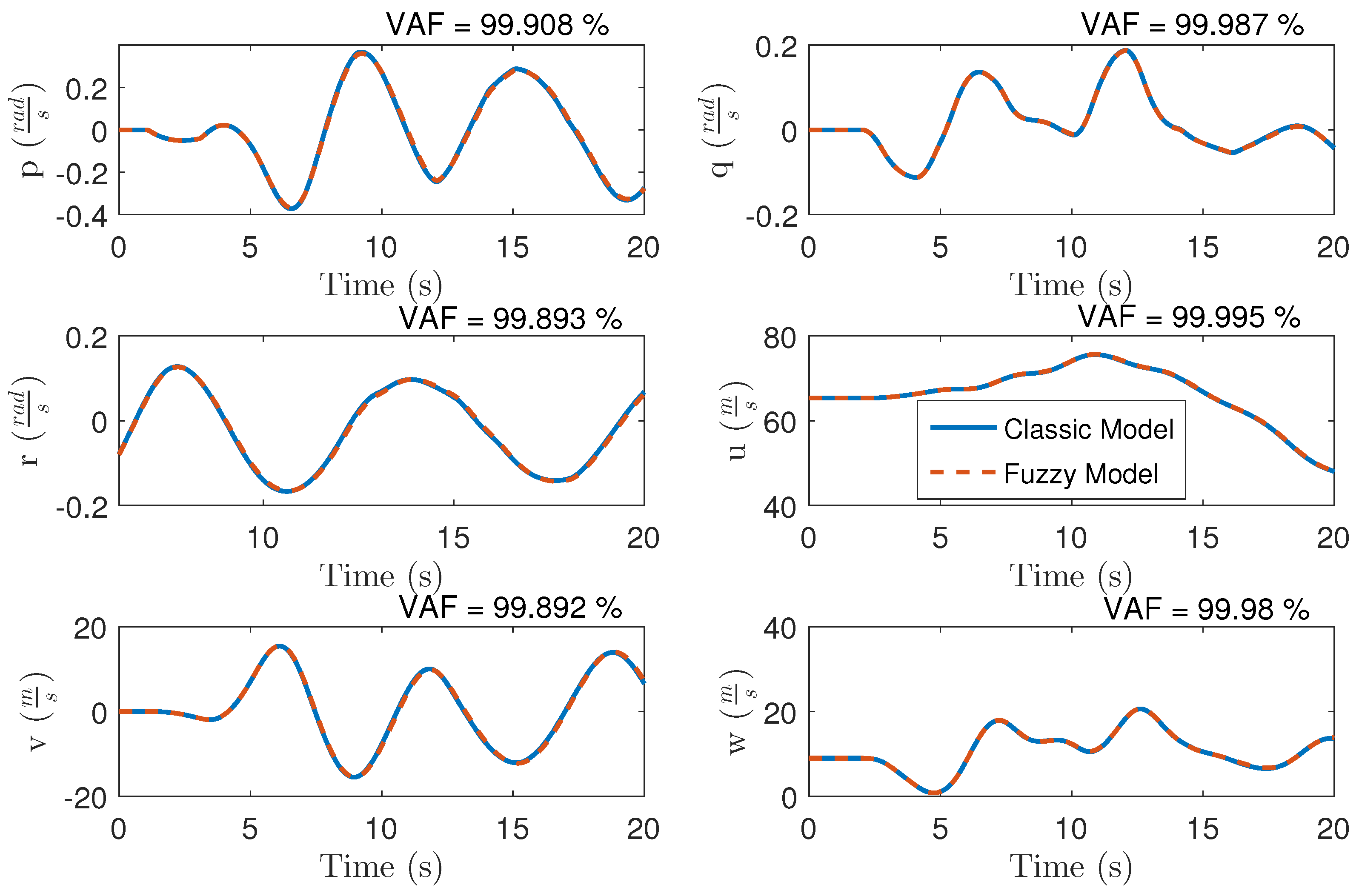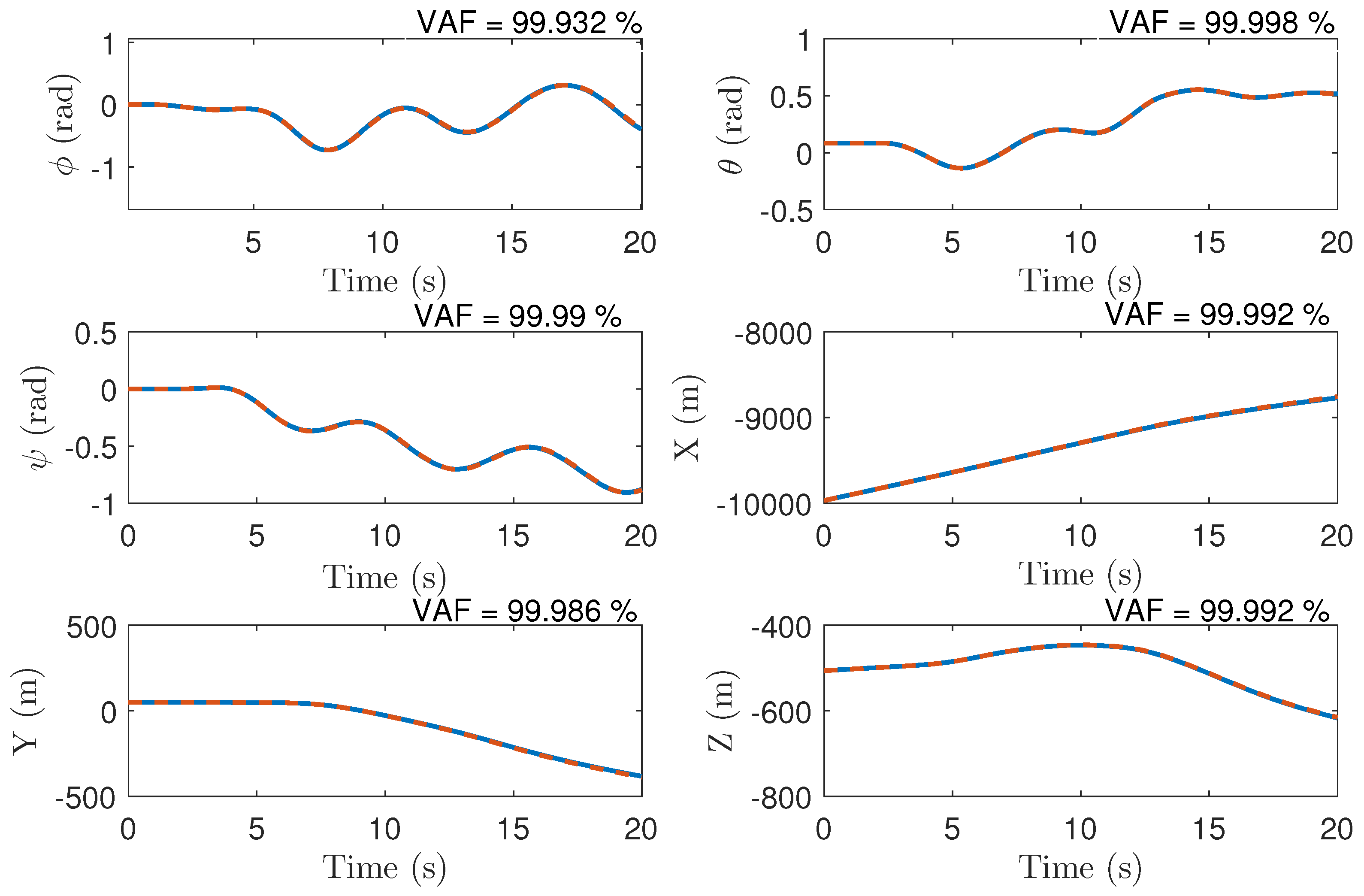1. Introduction
Piloting a modern aircraft – including crewed, remotely piloted, and fully-autonomous – relies on automatic control systems to insure robust stability and high performance under a wide variety of conditions. Robust stability, often measured by phase and gain margin, is a closed-loop concept that quantifies the ability of a feedback control system to remain stable in the presence of uncertainties, both in the mathematical model as well as unexpected changes in the external environmental conditions. The level of performance required is application specific and is often measured in terms of rise time, overshoots, settling time, and other time-domain performances. Many phases of flight, such as final approach with autonomous landing, require that many variables representing the aircraft attitude state (e.g., aircraft body reference frame relative to a ground reference frame) and translational (e.g., position and velocity relative to the ground) are controlled simultaneously. The level of complexity of any model-based control system design process coupled with the ability to guarantee robust stability and the requisite closed-loop performance depends on an accurate mathematical aircraft model describing both the translational motion as well as the orientation. In general, the more closely the mathematical model reflects the specific aircraft and the environment it flies in (that is, the real-world), the better the actively controlled closed loop system performance is likely to be. Improvements in control system design methodologies stemming from the availability of accurate, yet tractable, mathematical models when combined with effective navigation systems directly contributes to safe, high-performance flight.
The classical mathematical model of the aircraft translation and orientation is comprised of fifteen non-linear differential equations [
1]. Many control system design methodologies employ linearized mathematical models based on Taylor series approximation of the fifteen non-linear differential equations about an equilibrium point representing a flight regime of interest. For example, it is a well-known and often studied problem of providing smooth flight of passenger aircraft in the presence of wind turbulence. The mathematical model can be linearized about a wings-level, constant velocity flight condition and the feedback control system design based on linear mathematical models strives to keep the flight smooth and near that equilibrium condition. Large deviations from the equilibrium condition, say due an unexpected large wind shear, can move the aircraft out of the linear region and potentially lead to performance and stability issues. In a single flight, there are many flight regimes from take-off to landing represented by different equilibrium points. One of the extended solutions for this issue is the combination of different controllers with the same structure (i.e. gain scheduling) [
2].
This paper presents dynamical models for aircraft control design which implies accurate models with suitable structures for optimizing the control design stage. One of the aims of this paper is present a general modeling framework based on fuzzy logics for control design rather than linearization around various equilibrium points. This work explores fuzzy models with non-linear sector approach due to its proven ability to describe dynamic behavior in the field of non-linear systems (page 6 of [
3,
4,
5,
6]).
The application of Fuzzy Logic in the field of aerospace applications has been inherent to the emergence of the first contributions in this area, as shown in [
7,
8,
9]. These earlier works explored the use of fuzzy logic as alternatives in control algorithms, states estimation or fault detection. Afterwards, several contributions have been presented where experimental data and clustering techniques have been combined, together with fuzzy logic for the identification of dynamic models (black-box type) and/or controllers, some of these are [
10,
11,
12].
Since the use of fuzzy logic has given satisfactory results almost from its first applications, it has been widely used in many different areas of the aerospace sector such as dynamic control in hypersonic aircraft surfaces [
13], health monitoring for aircraft engines [
14], autopilots for helicopters [
15] or soft-sensors for Angle-of-Attack (AoA) estimation [
16,
17]. Furthermore, the application of fuzzy logic in novel areas of the aerospace sector, such as Unmanned Aerial Vehicles (UAVs) or Autonomous Underwater Vehicles (AUVs), is also currently an area of interest, as shown in [
18,
19,
20,
21,
22,
23].
The approach presented in this work is to define a global non-linear fuzzy model representing the global aircraft dynamics. In general, there are two approaches for constructing fuzzy models, (i) identification using input-output data (as mentioned before [
10,
11,
12,
24], and (ii) derivation from given non-linear system equations. The proposed fuzzy modeling framework is focused on the second approach and uses the idea of
Sector Non-Linearity. This method was introduced by Tanaka & Wang in (page 10 of [
3]) and enables the formulation of an equivalent fuzzy model from an original non-linear system using linear subsystems. This approach has been addressed previously in the aerospace field, as shown for example in [
23,
25,
26].
Sector non-linearity technique is based on representing any static non-linear term of a model with a fuzzy quantity which j-th rule is of the form:
IF is
and ... and
is
where
are the premise variables, and
are constant values (zero order model) or linear functions depending on the state variables
(first order model) of non-linear models.
In this paper, the main objective is to present a new version of the conventional fixed-wing aircraft dynamic model that uses fuzzy logic methods. In particular, a way to obtain an equivalent and complete fuzzy model of such non-linear model. This is the main contribution of this work and distinguishes it from other contributions such as [
25,
26], where the dynamics of the aircraft are only partially described (longitudinal model), the rotation matrices between the different axes are not included and simplifications are made through the application of Taylor Series to make the problem more affordable. For all these reasons, this article proposes a much more general framework that allows to obtain a global and complete model with a higher accuracy.
Finally, in a future research a Takagi-Sugeno fuzzy model (page 6 of [
3]) will developed starting from the fuzzy model obtained in this manuscript. This Takagi-Sugeno model will be used to design non-linear TS fuzzy controllers. On the hand, for a better understanding, the validation and examples of the proposed fuzzy modelling are performed using parameters of an Airbus A310 aircraft [
27].
This paper is organized as follows. In
Section 2 the classical aircraft dynamic model is presented where the attitude dynamics is represented by quaternions.
Section 3 introduces the sector nonl-inearity technique for fuzzy modeling.
Section 4 provides the construction of the fuzzy model by selecting model limits and applying these in the dynamic model.
Section 5 presents simulation results and validation with the Onera non-linear model benchmark of the A310 [
27].
Section 6 offers the conclusions.
3. Sector Non-linearity
Sector non-linearity in fuzzy model construction appears in page 10 of [
3], and is based on the following idea. Consider a non-linear system with a static non-linear term defined by a function
. The aim is to find the global sector such that
.
Figure 1 illustrates this approach. Sometimes it is difficult to find global sectors for general non-linear functions. Fortunately, many variables of physical models are easy to bound in aeronautics. In this case, we can consider a local sector non-linearity where two vertical lines become this local sector where
, and where
are the limits of the variable
as illustrated in
Figure 2. It is important to note that for this approach it is necessary that the linear function should intersect the origin of the system. For this paper this would be true for the reason that we are going to apply an equilibrium point.
This approach is going to be used in this paper to obtain the fuzzy representation of static non-linear terms which appear in the non-linear model of fixed wing aircraft according to equation (
1).
Example 1: The following non-linear function is the expression of angle-of-attack based on classic aircraft modeling:
We are going to obtain a fuzzy representation in two steps. In the first step, we deal with the equation between
and
s.
Figure 3 shows the graphical representation of
where two bounds of the global sector might be
. Therefore, based on these two simple sectors
can be represented using (
1) with two rules
where
The
and
consequents are
and 0 then:
Moreover,
is the reference variable of the fuzzy model. Note that the membership function will be dependent on
, then it is important to remark that in this function,
. Therefore, the membership functions can be calculated as
It should be noted that, in general,
, but if this happens, we set
and
. For the rest of the paper, these membership functions
are termed
type I.
In the second step we consider
. In the angle-of-attack case,
where
and
. In this non-linear case, the global sector cannot be defined, so a local sector should be used instead, where the quotient is bounded by
. The reason for these limits is the same as that mentioned at the beginning of Example 1. The outcome of the local sector non-linearity is this fuzzy quantity with two rules
where membership functions are
In this case, the
and
consequents are
and
then:
All membership functions with this structure are defined as
type IV and labelled as
.
For representing the
fuzzy model, the chosen value limits were
. In fuzzy models, it is usual to name the membership functions as "Positive", "Negative", "Zero" and "Not Zero" (See
Figure 4 and
Figure 5). Finally, the fuzzy model for
model has four rules after combining fuzzy quantities (22) and (26), and it is presented in
Table 1, where
|
= |
|
= |
40 |
|
= |
|
= |
|
|
= |
0 |
|
|
|
= |
0 |
|
|
The defuzzification is carried out as
where
,
,
,
. This fuzzy model is of zero order because all the consequents are constants.
For further information regarding this example, see example 3 in page 14 of [
3].
6. Conclusions and Future Works
A general framework for modeling fixed-wing aircraft using fuzzy structures and sector non-linearity techniques has been proposed. The main contribution is to obtain a more general and accurate non-linear model than other alternatives proposed in the existing literature, such as [
25,
26]. Moreover, the approach presented allows the expression of aerodynamic coefficients, moments, forces and wind effects, all of them expressed in terms of fuzzy logic and respect to the body-frame. This is possible thanks to the capability of the global and local sector non-linearity technique to approximate non-linear terms with fuzzy logic rules and with the same accuracy as the original non-linear model. In addition, the proposed quaternions form has contributed to the good performance of the fuzzy logic model by removing discontinuities and more complex trigonometric functions. However, the good mathematical performance of the quaternions has the negative effect of losing the physical concept of comparing the Euler angles. Nevertheless, it is possible to find an equivalent Euler representation from quaternions.
The main limitation for obtaining the equivalent fuzzy model is the requirement to limit the maximum and minimum values for some of the system variables. This is due to the application of the local sector non-linearity technique, as detailed in sections 3 and 4. However, this limitation is not extremely constraining in the case of fixed-wing aircraft, as there is often a significant amount of information available (theoretical and experimental) from manufacturers and the research community on the limits of these variables.
A Matlab toolbox has been implemented [
30] to simplify the application of this new approach for any standard fixed-wing aircraft defined by classical parameters such as geometry, mass, coefficients and bound conditions, where the outcome of the toolbox is a newly reformulated fuzzy model in terms of quaternions.
On the other hand, in section 5 using this Matlab toolbox a fuzzy equivalent model for the Onera non-linear model benchmark of the A310 [
27] is obtained. Also, a comparison between the AIR-BUS A310 model developed by ONERA and the obtained fuzzy model is performed. As a consequence, it is concluded that both models are equivalent.
The next step of research consists on obtaining a Takagi-Sugeno fuzzy model (page 6 of [
3]) from the fuzzy model obtained in this manuscript. Takagi-Sugeno models are suitable to design non-linear Takagi-Sugeno fuzzy controllers using well known methodologies based on linear matrix inequalities [
5,
6,
33].
Figure 1.
Global sector non-linearity and its membership functions
Figure 1.
Global sector non-linearity and its membership functions
Figure 2.
Local sector non-linearity
Figure 2.
Local sector non-linearity
Figure 3.
global sector non-linearity
Figure 3.
global sector non-linearity
Figure 4.
Membership functions and , Type I.
Figure 4.
Membership functions and , Type I.
Figure 5.
Membership functions and , Type IV.
Figure 5.
Membership functions and , Type IV.
Figure 6.
global sector non-linearity
Figure 6.
global sector non-linearity
Figure 7.
membership functions
Figure 7.
membership functions
Figure 8.
global sector non-linearity
Figure 8.
global sector non-linearity
Figure 9.
and membership functions
Figure 9.
and membership functions
Figure 10.
Flowchart which depicts the step by step of modeling process
Figure 10.
Flowchart which depicts the step by step of modeling process
Figure 11.
Simulated actuator values
Figure 11.
Simulated actuator values
Figure 12.
Validation of and V
Figure 12.
Validation of and V
Figure 13.
Validation of and X
Figure 13.
Validation of and X
Table 1.
: Fuzzy Model
| Model Rule 1 |
Model Rule 2 |
|
IF is "Zero" and |
IF is "Zero" and |
|
is "Positive" |
is "Negative" |
|
THEN
|
THEN
|
| Model Rule 3 |
Model Rule 4 |
|
IF is "Not zero" and |
IF is "Not Zero" and |
|
is "Positive" |
is "Negative" |
|
THEN
|
THEN
|
Table 2.
: Fuzzy Model
Table 2.
: Fuzzy Model
| Function: , |
Membership function types: II and IV |
|
Max and Min: and
|
| Model Rule 1 |
Model Rule 2 |
|
IF is and is
|
IF is and is
|
|
THEN
|
THEN
|
| Model Rule 3 |
Model Rule 4 |
|
IF is and is
|
IF is and is
|
|
THEN
|
THEN
|
Table 3.
: Fuzzy Model
Table 3.
: Fuzzy Model
| Function: , |
Membership function types: III |
|
Max and Min: and
|
| Model Rule 1 |
Model Rule 2 |
|
IF is
|
IF is
|
|
THEN
|
THEN
|
Table 4.
: Fuzzy Model
Table 4.
: Fuzzy Model
| Function: , |
Membership function types: IV |
|
Max and Min: and
|
| Model Rule 1 |
Model Rule 2 |
|
IF is
|
IF is
|
|
THEN
|
THEN
|
Table 5.
: Fuzzy Model
Table 5.
: Fuzzy Model
| Function: , |
Membership function types: V |
|
Max and Min: and
|
| Model Rule 1 |
Model Rule 2 |
|
IF is
|
IF is
|
|
THEN
|
THEN
|
Table 6.
: Fuzzy Model
Table 6.
: Fuzzy Model
| Function: , |
Membership function types: VI |
|
Max and Min: and
|
| Model Rule 1 |
Model Rule 2 |
|
IF is
|
IF is
|
|
THEN
|
THEN
|
Table 7.
: Fuzzy Model
Table 7.
: Fuzzy Model
| Function: , |
Membership function types: IV |
|
Max and Min: and
|
| Model Rule 1 |
Model Rule 2 |
|
IF is
|
IF is
|
|
THEN
|
THEN
|
Table 8.
: Fuzzy Model
Table 8.
: Fuzzy Model
| Function:
|
|---|
|
Membership function types: IV and VII |
|
Max and Min: and | and
|
| Model Rule 1 |
|
IF is and is
|
|
THEN
|
| Model Rule 2 |
|
IF is and is
|
|
THEN
|
| Model Rule 3 |
|
IF is and is
|
|
THEN
|
| Model Rule 4 |
|
IF is and is
|
|
THEN
|
Table 9.
: Fuzzy Model
Table 9.
: Fuzzy Model
| Function: , |
Membership function types: IV |
|
Max and Min: and
|
| Model Rule 1 |
Model Rule 2 |
|
IF is
|
IF is
|
|
THEN
|
THEN
|
Table 10.
: Fuzzy Model
Table 10.
: Fuzzy Model
| Function:
|
|---|
|
Membership function types: V and VII |
|
Max and Min: and | and
|
| Model Rule 1 |
|
IF is and is
|
|
THEN
|
| Model Rule 2 |
|
IF is and is
|
|
THEN
|
| Model Rule 3 |
|
IF is and is
|
|
THEN
|
| Model Rule 4 |
|
IF is and is
|
|
THEN
|
Table 11.
: Fuzzy Model
Table 11.
: Fuzzy Model
| Function: , |
Membership function types: IV |
|
Max and Min: and
|
| Model Rule 1 |
Model Rule 2 |
|
IF is
|
IF is
|
|
THEN
|
THEN
|
Table 12.
: Fuzzy Model
Table 12.
: Fuzzy Model
| Function:
|
|---|
|
Membership function types: IV and VII |
|
Max and Min: and | and
|
| Model Rule 1 |
|
IF is and is
|
|
THEN
|
| Model Rule 2 |
|
IF is and is
|
|
THEN
|
| Model Rule 3 |
|
IF is and is
|
|
THEN
|
| Model Rule 4 |
|
IF is and is
|
|
THEN
|
Table 13.
: Fuzzy Model
Table 13.
: Fuzzy Model
| Function:
|
|---|
|
Membership function types: IV and VII |
|
Max and Min: and | and
|
| Model Rule 1 |
|
IF is and is
|
|
THEN
|
| Model Rule 2 |
|
IF is and is
|
|
THEN
|
| Model Rule 3 |
|
IF is and is
|
|
THEN
|
| Model Rule 4 |
|
IF is and is
|
|
THEN
|
